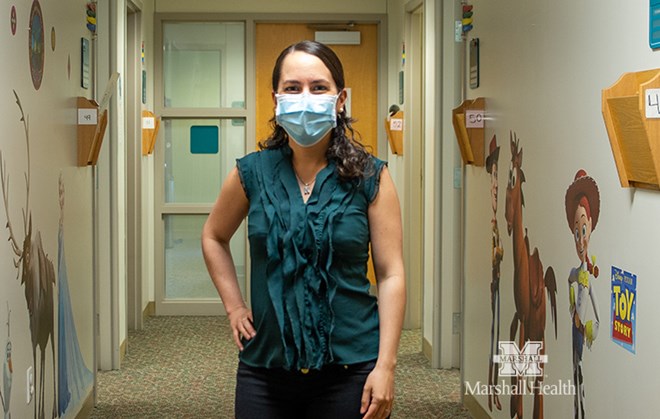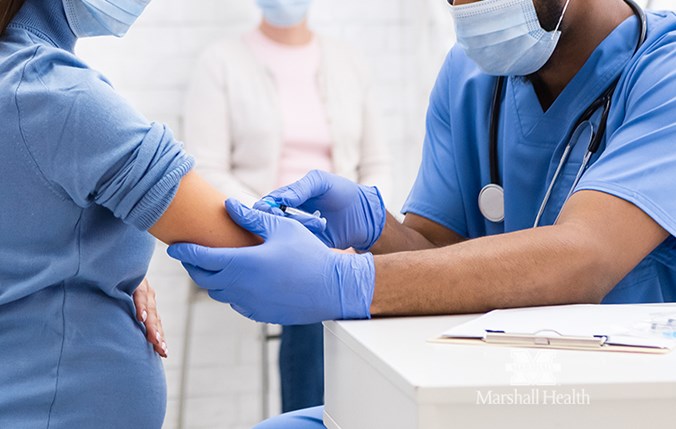Vaccines work with the immune system and allow a strengthened response to the virus if exposure occurs. Both the Pfizer and Moderna vaccines contain synthetic mRNA, which is genetic information used to make the SARS-CoV-2 spike protein. The spike protein is the part of the virus that attaches to human cells. The Johnson & Johnson vaccine uses viral vector technology.

With the Pfizer vaccine now approved for children 5 and older, Pediatric Infectious Disease Specialist Mariana Lanata, MD, answers some questions frequently asked by parents.

Dr. David Jude, chair of the Department of Obstetrics & Gynecology, addresses many of the questions pregnant and breastfeeding women may have when deciding whether the COVID-19 vaccine is right for them. >>Read More

The Pfizer-BioNTech COVID-19 Vaccine is authorized for the prevention of 2019 coronavirus disease (COVID-19) for individuals 5 years of age and older. In Phase 3 trials, the Pfizer vaccine showed a 95% efficacy rate seven days after the second dose.
The Moderna vaccine showed a 94% efficacy rate 14 days after the second dose.
Janssen Biotech, Inc., a pharmaceutical company of Johnson & Johnson, received emergency use approval (EUA) by the U.S. Food and Drug Administration on February 27, 2021. The vaccine is authorized for the prevention of 2019 coronavirus disease (COVID-19) for individuals 18 years of age and older. It is administered as a single dose.
Overall, among clinical trial participants, the vaccine was approximately 67% effective in preventing moderate to severe/critical COVID-19 disease occurring at least 14 days after vaccination and 66% effective in preventing moderate to severe/critical disease at least 28 days after vaccination.